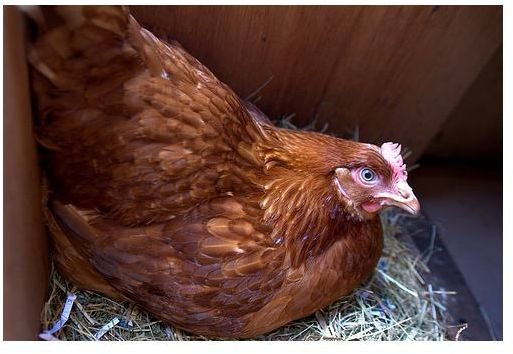Chickens and Their Eggs: Searching for the Best Organic Eggs
Organic food has, without question, entered the public consciousness and become mainstream. Though still only a small percentage of the total expenditures for food in the US, the growth in sales of organic products outstrips the growth in yearly sales of conventional foods by double-digits. Companies like Kraft, Coca-Cola, and General Foods are now marketing organic products, though under different brand names. This is a sign of the economic times as well as a significant shift in values; the marketplace is forced to answer public demands. Clearly, today’s health-conscious consumers are willing to pay more for foods, such as the best organic eggs, that are free from pesticides, herbicides, synthetic fertilizers, antibiotics, and hormones.
What Does Certified Organic Mean?
Many think that organic foods are limited to vegetables and fruits. In fact, there is no limit to the types of foods that can, and do, qualify for the certified organic label, including animal products. When a food is labeled with the official USDA certified organic label, it means that the product has met stringent requirements with regard to how it is grown, handled, and processed from the producer to the market.
In short, for fruits, vegetables, and grains, the products must be grown without the use of synthetic fertilizers, pesticides, or herbicides on land that has been free of these chemicals for at least three years. The producer must meet specific environmental standards of land, water, and air quality. The products must be kept separate from any non-organic products from the producer through to the point-of-sale. Producers, handlers, and processors are inspected periodically by third-party inspectors to ensure compliance at all levels.
In the case of certified organic animal products, the animals have been fed only certified organic grains and foods that are free of hormones, antibiotics, drugs, genetically modified foods, and animal by-products. Antibiotics are only administered in case of infection. Additionally, there are requirements that the animals must be allowed freedom of movement and fresh air exposure.
Organic Eggs vs. Regular Eggs
Commercial “factory farm” egg-laying chickens are fed non-organic foods that often contain hormones as well as antibiotics, which are routinely added to prevent the otherwise inevitable infections that result from birds being tightly contained together in small, indoor cages. Birds are “debeaked,” with the tips of their beaks sheered to prevent them from injuring each other in the tiny cages in which they spend their entire lives. These cages often contain six or seven other birds and disallow movement or even the stretching of their wings. Some factory farms induce molting, or the shedding of older feathers, by withholding food, water, and light for days or weeks to extend the egg production. Conditions are often deplorable, inhumane, and unsanitary.
Egg-laying chickens on organic farms are fed organic foods and are cage-free, having open access to the outdoors. Many organic producers feed their hens diets that include certified organic flaxseed, which contains high levels of omega-3 fatty acids which, in turn, results in increased healthy omega-3 content in their eggs. Pasture-raised organic chickens eat a wider range of natural foods offering a superior flavor in the eggs. Evidence suggests that free range organic eggs are healthier. They contain less fat and cholesterol with increased omega-3 fatty acids and nutrients, including lutein, vitamins A and E, and beta-carotene.
Being cage-free and allowed to molt naturally, organically raised chickens are certainly more humanely treated that factory farm chickens, though being certified organic alone doesn’t necessarily equate to an idyllic chicken life. A producer can be compliant technically while still provide a restrictive environment. Also note that eggs labeled “cage free” and “free range” are not organic unless they specifically include the USDA certified organic label. Since there is no industry definition or regulation of these terms, they can be misleading as to the actual environment in which the chickens live and their treatment.
The Good Eggs
The best organic eggs are labeled with both the USDA certified organic label and a Certified Humane® label. This program is voluntary for producers who comply with the stringent, humane standards set by this independent, non-profit organization that has been endorsed by the ASPCA and more than 35 other humane organizations. In order to qualify for certification, the producers must meet the highest animal welfare standards with compliance ensured by regular inspection. Producers can grow their businesses with the public awareness that their animals are treated well, allowing consumers the choice to support improved, humane practices with their purchasing dollars.
The best natural eggs are also ones that are produced locally, if there is the opportunity. Locally produced organic eggs and produce travel a shorter distance, requiring significantly reduced carbon emissions over foods trucked across the country. Buying local also supports the local food economy. Organic eggs and other foods purchased from local farmer’s markets or through Community Supported Agriculture programs, support local small farms to keep them in business and competitive with environmentally destructive factory farms.
Though organic eggs laid by humanely treated, healthy, happy chickens who enjoy a life of stretching, scratching, and socializing cost a bit more due to their superior feed and environment, the result is a healthier, better tasting egg. When considered against the real costs to the environment from non-organic, unsustainable farming practices and the horrific conditions and treatment inflicted on factory farm chickens, that increased price at the market is, in reality, a tremendous bargain.
References
Hansen, Nanette, Organic Food Sales See Healthy Growth: Mainstream food companies promote natural brands, CNBC TV.
National Organic Program, United States Department of Agriculture, Agricultural Marketing Service.
Certified Humane® is the Best Way to Help Farm Animals, Humane Farm Animal Care.
Dolson, Laura, What is a Cage Free Egg?, About.com, March 27, 2009.
It’s Easy Being Green: Organic vs. Conventional Foods - the Gloves Come Off, Center for American Progress, September 10, 2008.
Photo Attribution: Chicken by Ward from Flickr
